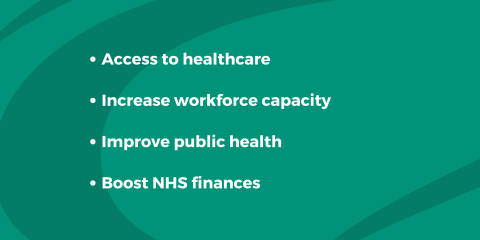The British Medical Association (BMA) has said policy decisions that have undervalued the medical profession are to blame for the amount of doctors leaving the NHS, in its submission to Lord Darzi’s report into the state of the NHS.
The report was commissioned by health secretary Wes Streeting shortly after he declared that the NHS was “broken”.
In its submission, the BMA says there are four main areas which the government must focus on in its 10-year reform plan. They are:
- access to healthcare;
- increasing workforce capacity in primary care and secondary care;
- improving public health; and
- boosting NHS finance, capital and productivity.
Workforce issues
The BMA says that failures to fix recruitment and retention issues have stunted efforts to grow the workforce, costing valuable experience at an important time.
Ultimately, policy decisions that have undervalued the medical profession are the root of the issue, according to the BMA.
This includes the way medical associate professionals have been deployed within the NHS, as well as how cultures of blame, discrimination and inequality have impacted staff wellbeing and patient safety.

“Without action to value doctors appropriately, workforce levels are unlikely to reach what is needed for quality care, now and in the future,” the BMA has said. “While training growth, and commitments to expand recruitment, is desperately needed, training capacity to deliver this is lacking.”
The BMA has also highlighted that public health budget cuts have had a knock-on effect to the general public, which has subsequently intensified demand on the NHS.
Meanwhile, a lack of infrastructure investment has contributed to maintenance backlogs for the NHS estate and limited modernisation. Maintenance backlogs now stand at more than £11bn.
‘Years of underinvestment’
The submission says: “Years of underinvestment and chronic staffing shortages mean that patients are finding it more and more difficult to access critical health services when they need them.
“The crisis in general practice is fuelled by an insufficient supply of GPs to meet demand and inadequate levels of resource being directed to primary care. By compromising continuity of care, through practices being less able to provide patients with consistent access to the same GP, opportunities to reduce hospital admissions are lost.”
It goes on: “To tackle waiting lists, the Government needs to ensure longstanding issues around pensions and other disincentives are addressed for staff working extra shifts. Rising numbers of doctors are leaving the NHS, and this is set to get worse without action. Policy decisions that undervalue the medical profession are ultimately to blame.”
Lord Darzi’s report is expected to come back next month.
Image credit: iStock



















